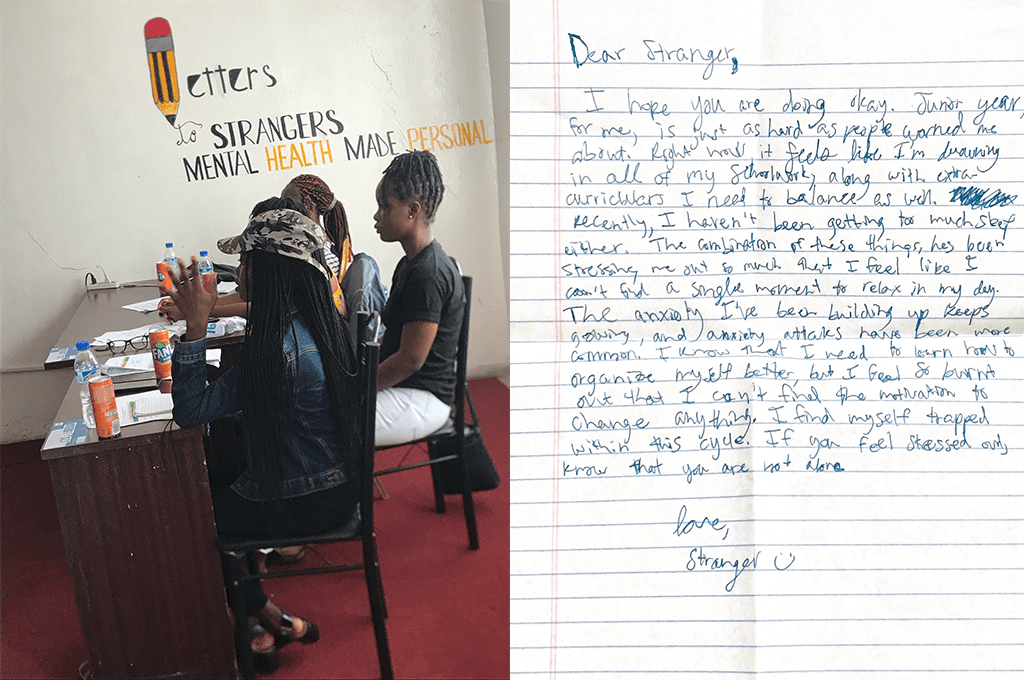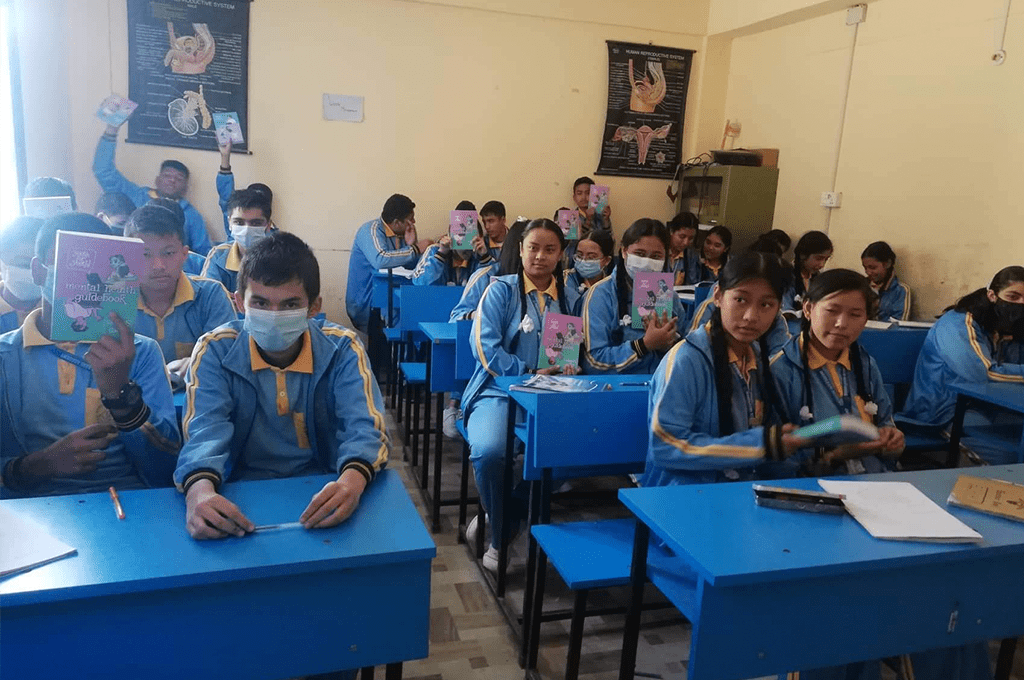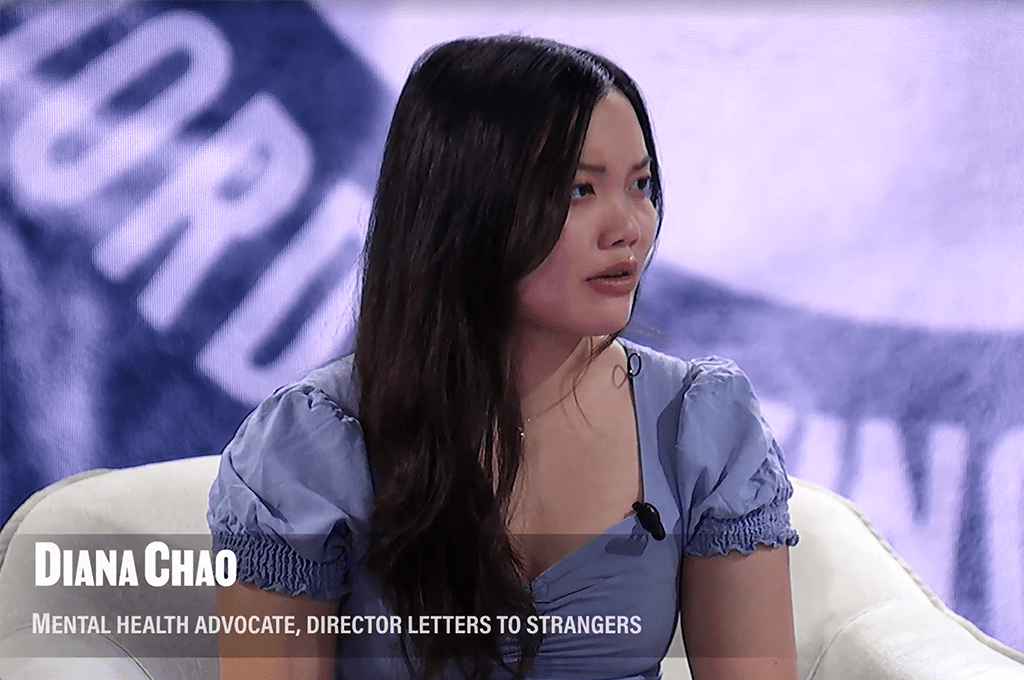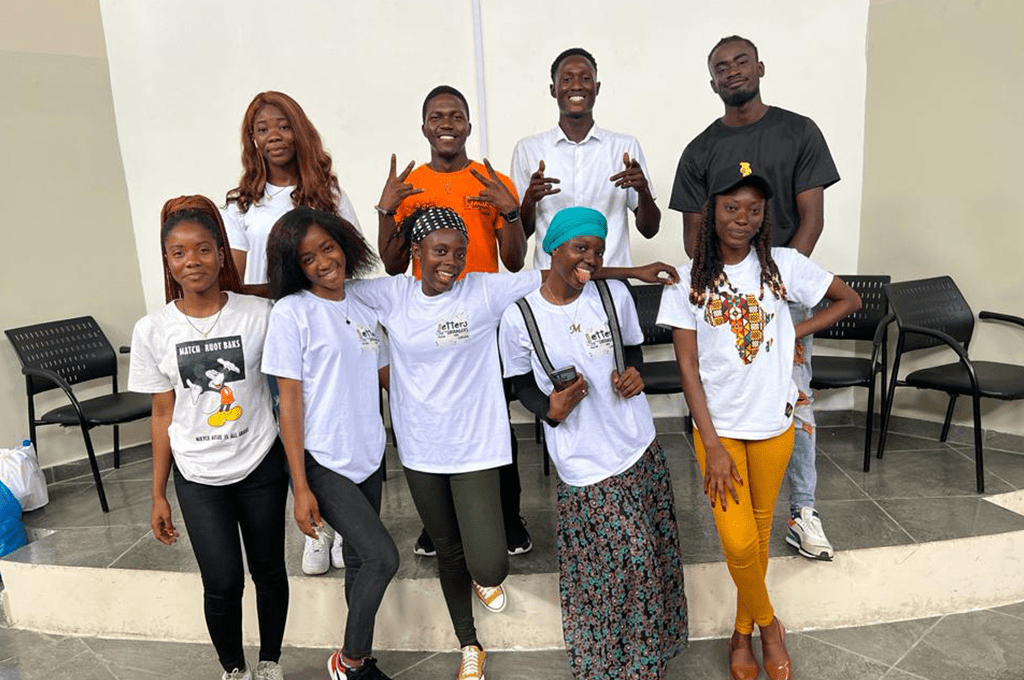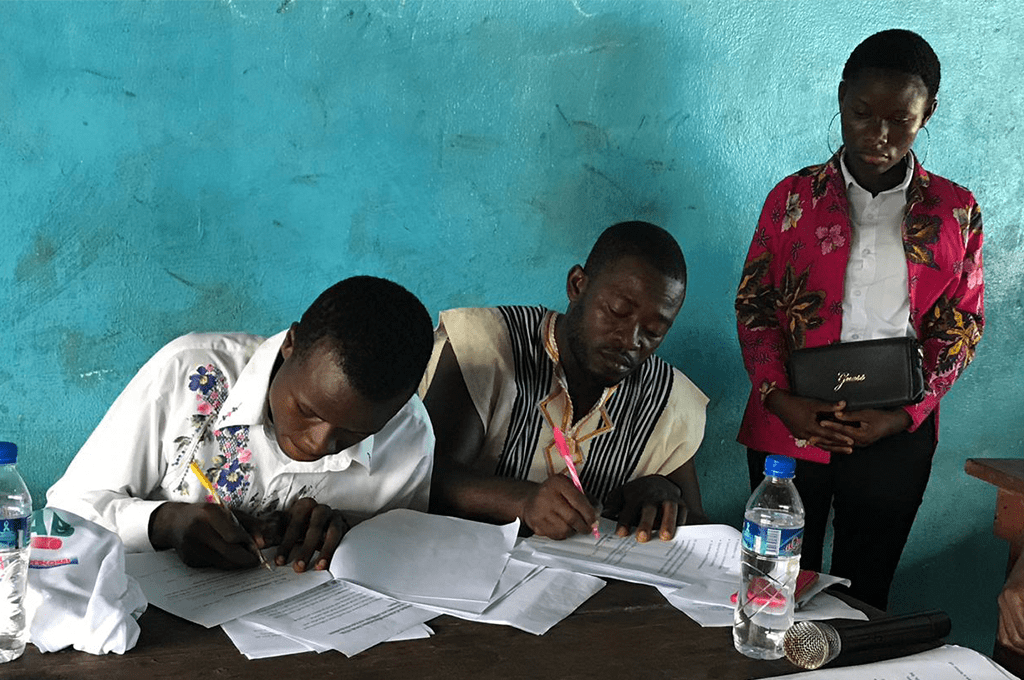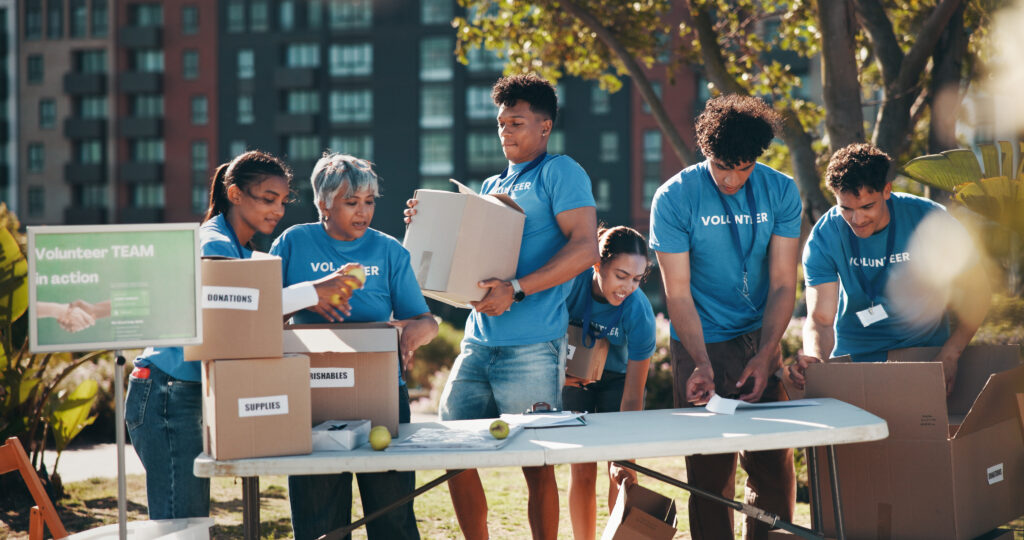Mental Health Made Personal
1 in 5 U.S. adults experience mental illness each year and 50% of all lifetime cases begin by age 14. By her sophomore year of high school, Diana Chao experienced not only a number of mental health episodes that led to a bipolar diagnosis, but also survived a series of suicide attempts. As a first-generation Chinese immigrant in a low-income household, it was challenging for Diana to find help. So to heal, she turned to writing.
Diana wrote letters to no one, to everyone, to strangers. The more letters she wrote, the more she found her voice, her self-compassion, and a new purpose. These letters made her feel less alone and she realized they could help others too.
Once high school classmates, Diana Chao and Clayton Becker, have grow Letters to Strangers from a small school club to a global non-profit. Their Mental Health Guidebook is just one of the ways they are bringing youth helpful resources to cope with their own mental health.
In 2013, Diana founded Letters to Strangers (L2S) as a school club that met weekly to provide support to peers facing similar mental health issues. L2S quickly grew from a club into a community. Today, L2S operates in more than 20 countries and has grown into the largest global youth-run non-profit focused on destigmatizing mental illness and increasing access to affordable, quality treatment. In addition to anonymous letter writing they provide a science-based peer education program, the first pan-African toll-free mental health hotline, and scholarship opportunities.
“This cause is something I never imagined would grow as big as it is today,” Diana stated “but it is even more important now with suicide as the second leading cause of death for young people accross the world”.
A cornerstone to Letters to Strangers’ success is the friendship between Diana and Clayton Becker. Clayton is the organization’s Chief Learning Officer, an original club member, and a childhood friend of Diana’s. Their relationship and trust has been paramount to creating a safe, dynamic .ORG over the past decade, especially given the inherently emotional nature of their work.
“We are operating on a shoestring budget and are fundamentally volunteer run,” Becker explained. “In making this work in a globally collaborative way, it requires people to marshall those forces and have consistency.”
The large network of volunteers and support that Letters to Strangers has built includes students, teachers, community organizations, healthcare workers, individuals looking for mental health resources, and corporate partners seeking employee resources. Their online presence and social media platform plays a critical role in expanding this reach.
When Sara Sonnenblick stumbled across Diana on Instagram, L’Oreal had just named her a 2020 Women of Worth. Struggling with her own mental health, Sara saw volunteering with L2S as an opportunity and motivation to get better. Within months, Sara organized a chapter at her school, coordinated a letter exchange, and felt the firsthand, instantaneous benefits of it. “Even though it was nerve wracking, it was inspiring to write a letter to a stranger. They do not know who I am, there are no biases, and it is truly meaningful to share kind words within my community,” she reflected.
While attending high school in Florida, Sara Sonnenblick first heard of and got involved with Letters to Strangers to help address her own mental health challenges. Now she is leading her school’s own chapter in hopes to help others. Watch to learn more about her story.
While thousands of teens like Sara have been directly impacted by the youth-to-youth programming, Chao, Becker, and their team work diligently to destigmatize mental illness and make treatment options more accessible to those of all ages. “There can be an unwillingness to talk about mental disorders because it is difficult and different for each person,” Becker stated.
I know sometimes it feels easier to give up, but you should remember how far you have come and you are stronger than you think you are
L2S makes navigating the complex subject less unwieldy with their free, comprehensive guidebook on mental illness, curriculum materials, and partner engagement program. They also advocate, both locally and nationally, for action on mental health awareness and treatment reform.
“This works because we care,” Becker explains, “and there is a place for everyone to get involved—Everyone has mental health”.
To do so or learn more, visit www.letterstostrangers.org.

